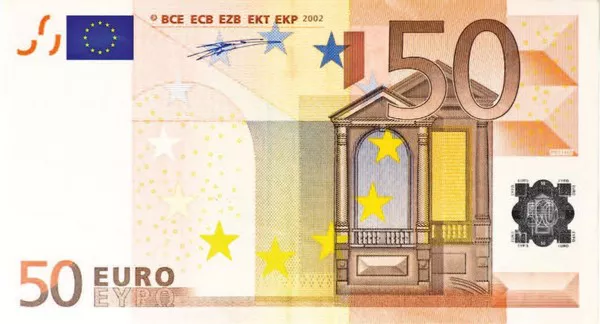In the dynamic world of forex trading, where global economies intertwine and financial markets fluctuate, a crucial player for traders to comprehend is the European Central Bank (ECB). As the monetary authority for the Eurozone, the ECB plays a pivotal role in shaping the economic landscape of the European Union (EU). This article aims to unravel the significance of the ECB in forex trading, exploring its functions, impact on currency markets, and the broader implications for traders.
The Birth of the Euro and the ECB
The inception of the Euro in 1999 marked a historic milestone in the economic integration of European nations. The Eurozone, comprising countries that adopted the Euro as their official currency, sought to foster economic cooperation and stability. Central to this initiative was the establishment of the European Central Bank, headquartered in Frankfurt, Germany.
The ECB was officially launched on June 1, 1998, with the primary objective of maintaining price stability within the Eurozone. This entails keeping inflation in check, a crucial factor for economic growth and stability. The ECB was granted the exclusive authority to formulate monetary policy for Eurozone countries, distinguishing it as a key player in the global financial arena.
Mandate and Functions
The ECB’s mandate revolves around the maintenance of price stability, with a target inflation rate set at around 2%. To achieve this goal, the bank deploys various monetary policy tools. The most prominent of these tools is the interest rate, which the ECB adjusts to influence borrowing costs and control inflation.
Additionally, the ECB monitors and assesses economic indicators and financial markets to make informed policy decisions. It conducts regular economic analyses, taking into account factors such as GDP growth, employment rates, and inflation expectations. By doing so, the ECB ensures that its policies align with the broader economic objectives of the Eurozone.
Monetary Policy and Forex Markets
The ECB’s monetary policy decisions have a profound impact on forex markets, influencing currency values and market sentiment. One of the key tools at the disposal of the ECB is the interest rate, which directly affects the attractiveness of the Euro as an investment.
When the ECB raises interest rates, the Euro often strengthens as higher rates attract foreign capital seeking better returns. Conversely, a decrease in interest rates may lead to a depreciation of the Euro as investors seek higher yields in other currencies. Forex traders keenly watch ECB announcements and policy statements for insights into potential market movements.
Moreover, the ECB’s quantitative easing (QE) programs can impact forex markets. QE involves the central bank purchasing financial assets to inject liquidity into the economy. This can lead to a depreciation of the Euro, as an increased money supply may reduce its value relative to other currencies.
Influence on Market Sentiment
Apart from the direct impact on currency values, the ECB’s actions and statements play a crucial role in shaping market sentiment. Traders closely follow ECB press conferences and statements by its officials for clues about future policy directions. Any hints regarding potential changes in interest rates or shifts in monetary policy can trigger significant market movements.
The ECB’s commitment to transparency is evident in its communication strategy. Regular press conferences by the ECB President and the release of meeting minutes provide valuable insights into the central bank’s thinking. Forex traders, armed with this information, can make more informed decisions and better navigate the volatile currency markets.
Challenges and Criticisms
While the ECB plays a vital role in maintaining stability, it is not immune to criticisms and challenges. One notable critique is the diverse economic conditions across Eurozone countries. The ECB’s one-size-fits-all monetary policy may not adequately address the unique challenges faced by individual member states.
Additionally, the ECB faces the ongoing challenge of achieving its inflation target. In recent years, the Eurozone has experienced periods of low inflation, prompting the central bank to explore unconventional measures. Negative interest rates and large-scale asset purchases have been part of the ECB’s toolkit, raising concerns about the long-term effectiveness and potential side effects of such policies.
See Also:ECB Announcement
Global Implications of ECB Policies
The ECB’s actions extend beyond the borders of the Eurozone, impacting global financial markets. As one of the major central banks, the ECB’s policies contribute to the broader trends in global interest rates and market liquidity. Changes in the Euro’s value, driven by ECB decisions, reverberate across currency pairs and affect trading strategies worldwide.
Moreover, the interconnectedness of global financial markets means that developments in the Eurozone can trigger ripple effects in other economies. Forex traders need to consider the potential spillover effects of ECB policies on currencies beyond the Euro, making it essential to stay abreast of international economic developments.
Conclusion
In conclusion, understanding the role of the ECB in the EU is fundamental for anyone involved in forex trading. As a key player in the global financial landscape, the ECB’s policies and decisions have far-reaching implications, shaping market sentiment and influencing currency values. Forex traders must keep a watchful eye on ECB announcements, press conferences, and economic analyses to make informed decisions in this ever-evolving market. The Eurozone’s commitment to economic stability through the ECB underscores the interconnected nature of global financial markets, emphasizing the need for traders to stay vigilant and adaptable in their strategies.
Related Topics:
When Will ECB Raise Interest Rates: A Quick Guide
What is the Current ECB Interest Rate: A Quick Guide
When Will Europe’s Interest Rates Come Down?
























